Walnuts are a type of nut that is highly nutritious and beneficial to one’s health. Let’s discover how many calories are in 100g of walnuts and whether consuming a lot of these nuts can lead to weight gain in the following article.
1. Nutritional Value of 100g of Walnuts
Nutritional Value of 100g of Walnuts
Walnuts are the fruit of the walnut tree, native to the Mediterranean region and Central Asia. They are highly nutritious and extremely beneficial to one’s health.
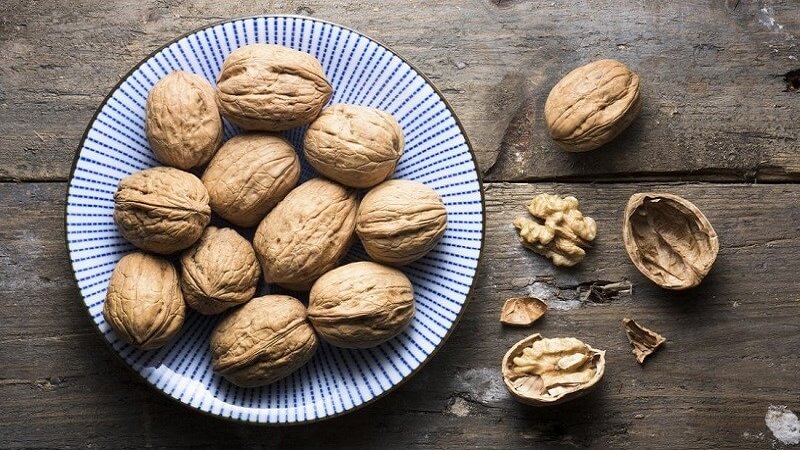 Walnuts contain many nutrients that are good for health
Walnuts contain many nutrients that are good for health
According to the USDA (United States Department of Agriculture), 100g of walnuts contain 654 Kcal, 84% fat (65.21g), 8% carbohydrates (13.71g), 9% protein (15.23g), 98mg sodium, 158mg magnesium, 2.91mg iron, 6.7g fiber, 346mg phosphorus, 3.09mg zinc, and 3.414mg copper.
Additionally, 100g of walnuts contain numerous essential elements for the body, such as potassium, calcium, folic acid, vitamin B6, vitamin E, and omega-3.
Health Benefits of Walnuts
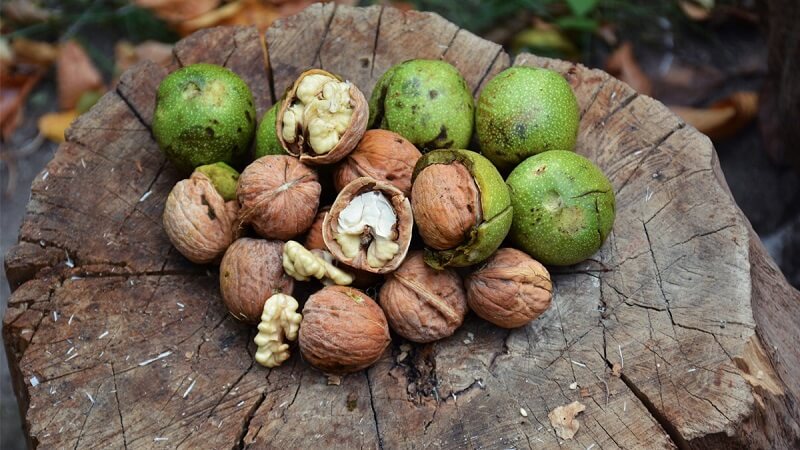 Walnuts have many health benefits
Walnuts have many health benefits
- Brain Health: Walnuts are rich in omega-3 fatty acids, which are essential for brain function, enhancing memory, and preventing Alzheimer’s disease.
- Weight Loss: The high fiber content, along with other nutrients in walnuts, is very beneficial for weight loss. Additionally, combining a walnut-rich diet with regular exercise will yield better results.
- Heart Health: The antioxidants and vitamins in walnuts significantly reduce cholesterol levels in the blood, thereby preventing cardiovascular diseases.
- Diabetes Management: Due to their high content of unsaturated fats, walnuts are excellent for diabetics in regulating blood sugar levels and lowering blood pressure. Moreover, walnuts can aid in the production of amylase, an enzyme that diabetics need.
- Bone Health: The omega-3 fatty acids in walnuts help the body absorb calcium efficiently, and the high calcium content in these nuts also contributes to protecting and preventing bone and joint problems.
- Metabolism: Walnuts contain essential nutrients that support the body’s metabolism, promoting overall health and preventing diseases.
2. How Many Calories Are in 100g of Walnuts?
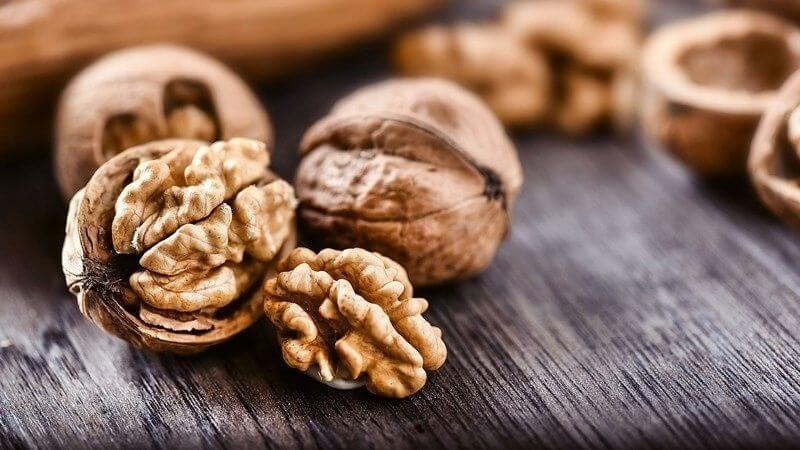 100g of walnuts contain 654 calories
100g of walnuts contain 654 calories
A calorie is a unit that measures energy levels, and both high and low-calorie intakes can impact the body’s metabolism. Therefore, knowing the calorie content of food is crucial, especially for those on a weight loss diet or following a specific nutritional plan.
According to Vinmec, 100g of walnuts contain 654 calories, which is a suitable amount considering that the average adult requires 2000 to 2500 calories per day.
3. Will Eating Walnuts Make You Gain Weight?
To maintain their daily activities, adults need around 2000 – 2500 calories.
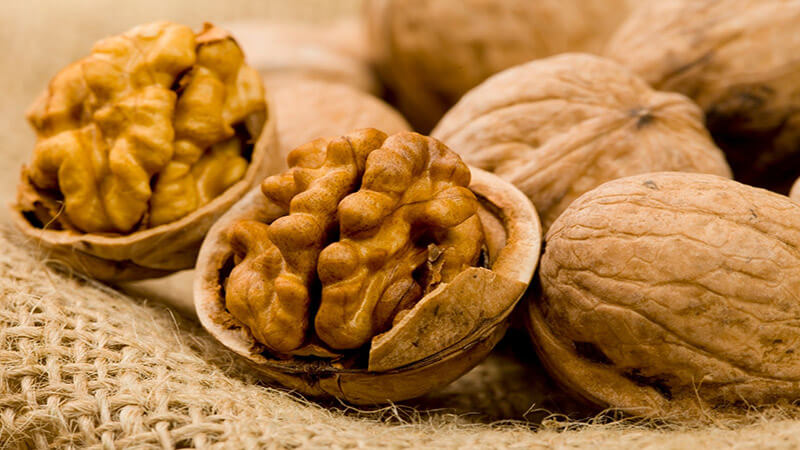 Consuming too many walnuts over an extended period can lead to excess energy and weight gain.
Consuming too many walnuts over an extended period can lead to excess energy and weight gain.
According to the USDA, 100g of walnuts contain 654 calories (approximately 46 shelled walnut kernels), 30g contain 185 calories (about 14 shelled walnut kernels), and 1 walnut kernel contains 13.1 calories.
With the above-mentioned calorie content, walnuts are very suitable for the body’s metabolic needs. However, consuming too many walnuts over an extended period can lead to excess energy, causing fat accumulation and resulting in obesity and weight gain.
Therefore, it is essential to consume walnuts in moderation, combine them with physical exercise, and maintain a healthy lifestyle to prevent weight gain.
4. Notes on Eating Walnuts for Better Health
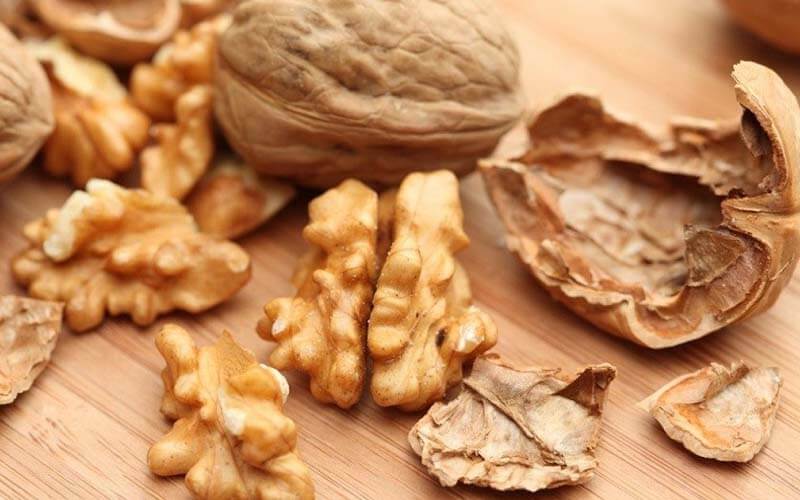 Notes on eating walnuts for optimal health benefits
Notes on eating walnuts for optimal health benefits
According to nutritionists, the recommended intake for adults is 6 to 7 walnuts with shells (30g), 4 to 5 walnuts for children, and a maximum of 9 walnuts for the elderly or those with health conditions. For those aiming to lose weight, it is advisable to consume 30g of walnuts spread throughout the day.
- Walnuts can cause allergic reactions, so it is recommended that children consume no more than 5 walnuts to prevent potential allergies. Additionally, those who experience adverse reactions to this type of nut should refrain from consuming it.
- Despite their high mineral content, excessive consumption of walnuts can lead to reduced mineral absorption due to the presence of phytic acid or phytate, which inhibits mineral absorption.
- Avoid eating walnuts late at night before bedtime, as walnuts are not easily digested and may disrupt your sleep.
- Walnuts contain a high amount of oil, so they should be stored in a cool, dry place, preferably in the refrigerator.
5. Delicious Dishes Made with Walnuts
Walnut Porridge
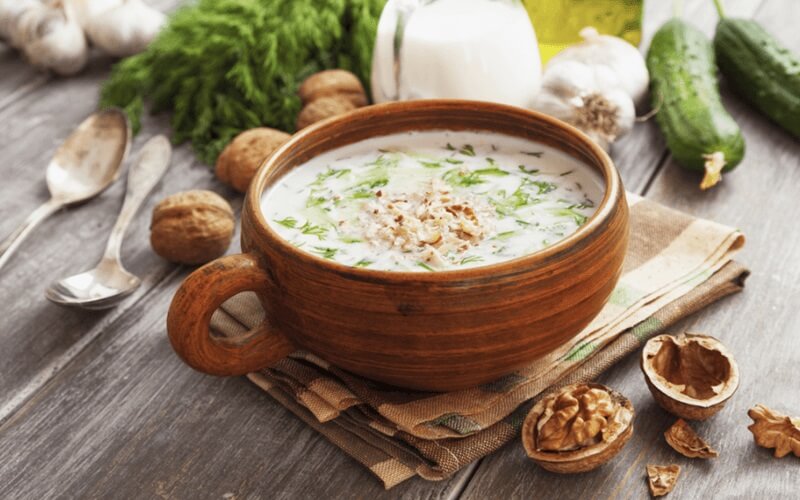 Walnut porridge is a nutritious and delicious dish, perfect for breakfast.
Walnut porridge is a nutritious and delicious dish, perfect for breakfast.
Walnut porridge is a nutritious and tasty dish, ideal for breakfast. It is also easy to prepare. Simply cook the porridge with minced meat, mushrooms, and grated walnuts. Add 2 teaspoons of fish sauce and 1 teaspoon of pepper, and cook for 10 minutes. Finally, add green onions and serve.
The addition of walnuts to the porridge enhances its nutritional value, making it a hearty and flavorful dish that appeals to everyone.
Hot Pot with Walnuts
The walnut-enriched broth becomes more nutritious, aromatic, and flavorful, making it irresistible to anyone who tries it.
Walnut Milk
 Walnut milk is a delicious and nutritious breakfast option.
Walnut milk is a delicious and nutritious breakfast option.
Walnut milk is a tasty and nutritious breakfast option that will satisfy anyone. To prepare it, soak the walnuts in water for 4 hours to soften them, then drain and rinse.
Next, blend the walnuts with 200ml of water, strain the mixture, and cook it on the stove for 15 minutes with a pinch of salt. Your walnut milk is now ready to be enjoyed. It has a creamy texture and a pleasant taste that will energize you in the morning without feeling heavy.
Walnut, Almond, and Black Bean Milk
 Walnut, almond, and black bean milk has a unique flavor.
Walnut, almond, and black bean milk has a unique flavor.
This milk blend has a unique flavor due to the combination of three healthy nuts: walnuts, almonds, and black beans. To prepare it, soak the black beans for 8-10 hours and the almonds and walnuts for 4 hours.
Then, cook the black beans and almonds with 500ml of water for 30 minutes and blend everything together in a blender 4-5 times before straining the mixture.
Black Bean and Walnut Milk
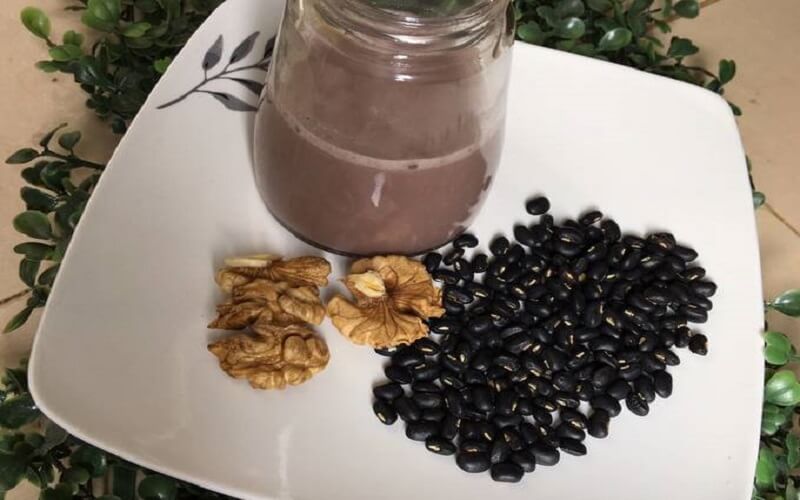 Black bean and walnut milk is warm, aromatic, and highly nutritious.
Black bean and walnut milk is warm, aromatic, and highly nutritious.
The preparation method for this milk is similar to the previous ones. Soak the black beans for 8-10 hours, blend them, strain the mixture, and cook it until it boils. This milk has a warm, aromatic, and highly nutritious quality that will impress anyone who tries it.
Salted Walnuts
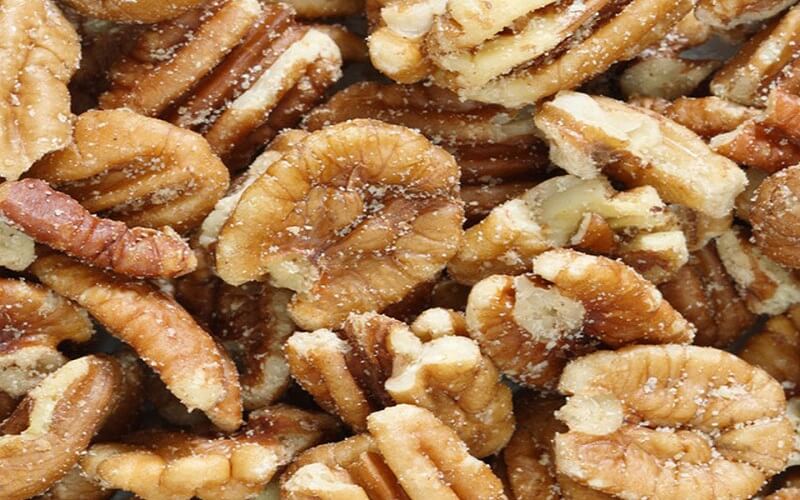 Salted walnuts are a delicious and unique way to enjoy this nut.
Salted walnuts are a delicious and unique way to enjoy this nut.
Salted walnuts are a tasty and distinctive way to enjoy this nut. Simply roast the walnuts with salt in a pan until they turn golden brown. The combination of the nutty flavor and the salty taste is delightful.
Candied Walnuts
 Candied walnuts have a delicious sweet and nutty flavor.
Candied walnuts have a delicious sweet and nutty flavor.
If you don’t want to make salted walnuts, you can candy them instead. Simply cook a sugar syrup and add the walnuts, stirring continuously until the sugar caramelizes and dries. This treat has a wonderful sweet and nutty flavor that will win over anyone’s heart.
Buttered Walnuts
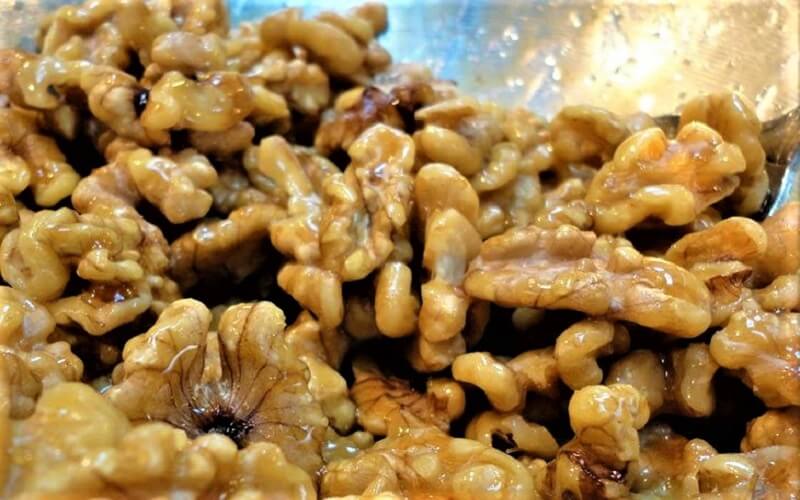 Buttered walnuts have a delightful aroma and flavor.
Buttered walnuts have a delightful aroma and flavor.
Another delicious way to enjoy walnuts is to butter them. Simply take the walnut kernels and roast them with a little butter for about 15 minutes, then add some spices and continue cooking for another 5 minutes. You can season them to your liking. The aroma and flavor of the buttered walnuts are irresistible.
The information provided above offers interesting and valuable insights into the nutritional benefits of walnuts and their calorie content. Hopefully, you found this article informative and engaging.
Source: Vinmec































